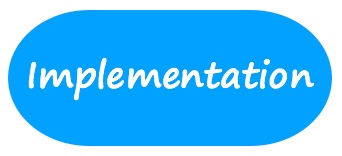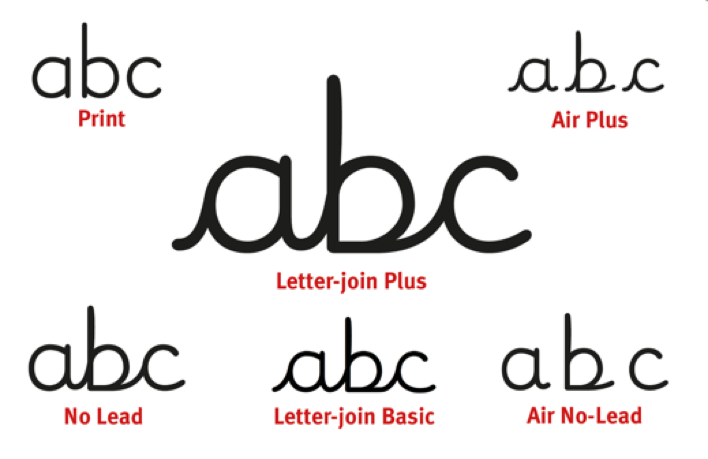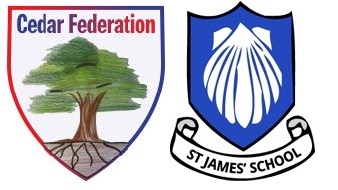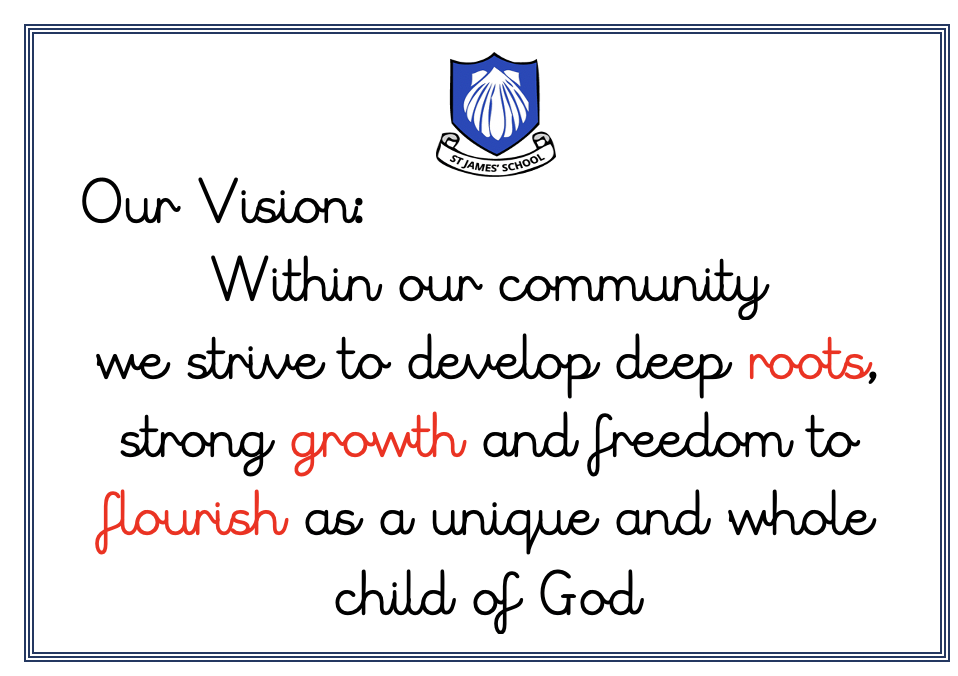English
At St James’ CE Primary School, we are committed to providing our children with a curriculum that has a clear intention and impacts positively upon their needs.
When our children leave St James’, we understand how a strong grounding in English will impact their future learning and the development of a child in all aspects of their life. We want our children to become avid readers, who read with fluency and enjoyment. They can make comments about a text and explain their preference and know that there are many genres and authors to choose from. We want our children to be able to write for a range of purposes and audiences whilst developing their own flair. Writing grammatically, using a range of vocabulary and applying a range of spelling rules alongside a neat and joined handwriting style is essential in our children becoming confident writers now and in the future. We aim for our children to apply these English skills across the curriculum.

- To create confident writers who develop stamina for writing throughout school and are able to write at length.
- For all of our children to be independent writers, building on a range of skills as they work through each journey of writing.
- That all of our children are exposed to high quality texts that model excellent writing practices across a broad range of genres.
- Ensure that all pupils know how to plan, practise, evaluate their work as well as carry out an effective editing and improvement process using feedback from the teacher.
- That our children are challenged and encouraged to take risks and view mistakes as a positive part of the learning process.
- To provide a balanced and broad curriculum which allows children to write within the different genres alongside handwriting, spelling, grammar and widening vocabulary.
- To be inclusive of all children, including SEND, by providing the appropriate scaffolding, support and writing tools those children need in their writing process to experience success.
- That our children have high expectations of themselves where they take pride in all aspects of learning and in everything they produce.

Reading:
Reading is at the core of our curriculum. Each of our classrooms has an inviting library where children can select books to read as well as use the banded books which are linked to the Little Wandle phonics programme. Children that have completed the banded scheme, but are not quite ready to be free readers, select their reading books from our rainbow read books that have been selected to be challenging but accessible. Each class has a novel that is shared each day by the class teacher, linked to the humanities topic and develops listening skills. The teaching of comprehension is essential in children learning how to understand the text and the author's choices. These are taught through our vipers reading sessions, alongside the other reading skills. Reading for pleasure and enjoyment is at the heart of what we do, and we read across the curriculum and through all our lessons so that our children can access a wide range of genres to enable them to be successful readers, which will impact their learning in a positive way.
Phonics:
At St James' we use the ‘Little Wandle’ phonics programme. The programme fosters children’s speaking and listening skills and equips them with phonic knowledge and skills to enable them to become a fluent reader. Foundation stage and Key stage 1 classes have daily Phonics lessons that reinforces a letter sound and phase. There are 5 phases and these are taught as a whole class and in smaller groups or on a 1:1 basis. The books that the children are reading match the phonics attainment and teaching. High quality lessons, practical and interactive lessons are used and, in Year 1 the children complete a phonics screening check in the summer term. This shows whether they have met the expected standard of phonics knowledge for their age. Children who do not meet the standards are supported in Year 2 to help them reach the expected standard. Any children that reach the end of year 2, without completing the phonics programme, are supported with daily rapid catch-up phonics sessions. All staff are trained to deliver the phonics programme to ensure consistency and support for the children.
Handwriting
Cursive handwriting teaches pupils to join letters in words as a series of continuous flowing movements or patterns and children are taught cursive handwriting from Reception onwards using ‘Letterjoin’, our online platform that is used in school and through home learning. In reception and Year 1 children are taught correct letter formation through print. In year 2 we begin the teaching of continuous cursive writing. Children will develop writing words without taking the pencil off the page. Continuous style provides a directional left and right movement. This flowing, rhythmical movement aids speed and fluency particularly when practised from Foundation level with the final product being neat and fast. This cursive style also lessens the chance of reversing letters by eliminating the need to lift the pencil between letters. The spaces between words become distinct and the distinction between upper and lower case is clearer. Pupils with specific learning disabilities find continuous cursive useful because the pencil stays on the page throughout every word, thus simplifying the movement.

Spelling
At St James’ we believe that spelling has a direct effect upon progress in all other areas of the curriculum and is crucial to developing a child’s confidence, motivation and self-esteem. We provide children with a range of spelling strategies throughout school which cater for different learning styles. Early spelling is taught through phonic work in Early Years, Foundation and Key Stage 1 using our phonics programme ‘Little Waddle’. As children move from Key Stage 1 to Key Stage 2, the emphasis shifts from the teaching of phonics to more focussed teaching of spelling strategies, conventions and rules to build upon the children’s established phonic knowledge. We use the spelling shed programme to teach the spelling curriculum and each child has their own log in so that they can access the programme at home.
Writing Process
Each unit of writing is taught through a learning journey that begins with a ‘cold task’ written by the children, in the genre being taught. A series of lessons then follows, teaching the skills needed for a high-quality piece of writing in the genre. Although the pedagogical process is detailed for each lesson, teachers have the professional scope to make adjustments where they think they are needed. For example, if more than one lesson is needed to embed a skill, then this can be done or if an extra lesson is needed for drama/speaking and listening, then teachers have the freedom to do so. Each stage of the learning process is evident in our books, learning environment, planning and pupil voice discussions. Learning journeys are usually based on high quality texts, but we also use videos, real life events, images or lyrics from a song (anything that might get the children excited about writing). The ‘hot tasks’ at the end of each writing unit, show the progress each child has made within the unit, and the hot tasks written throughout each term are then used by teachers to assess.

The impact on our children is clear: progress, sustained learning and transferrable skills. With the implementation of the writing journey being well established and taught thoroughly in both key stages, children are becoming more confident writers and by the time they are in upper Key Stage 2, most genres of writing are familiar to them and the teaching can focus on creativity, writer’s craft, sustained writing and manipulation of grammar and punctuation skills. Teachers complete termly assessment, which allows them to have a clear understanding of what the children in their class need in order to become a successful writer and reader and that then influences what and how it is taught to the children in order for them to be successful.
As all aspects of English are an integral part of the curriculum, cross curricular writing standards have also improved and skills taught in the English lesson are transferred into other subjects; this shows consolidation of skills and a deeper understanding of how and when to use specific grammar, punctuation and grammar objectives.
We hope that as children move on from St James’ to further their education and learning, that their creativity, passion for English and high aspirations travel with them and continue to grow and develop as they do, so that they are a lifetime reader and writer.

